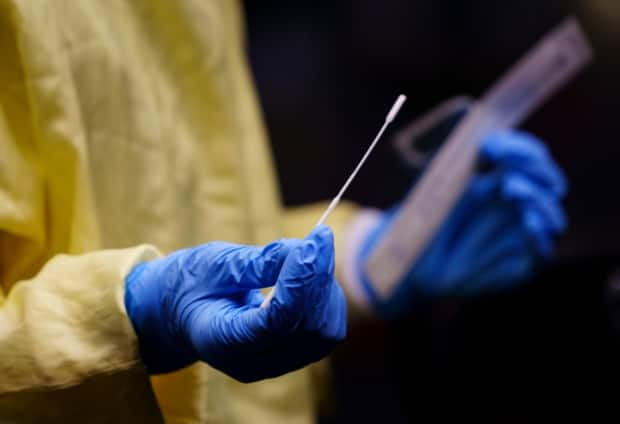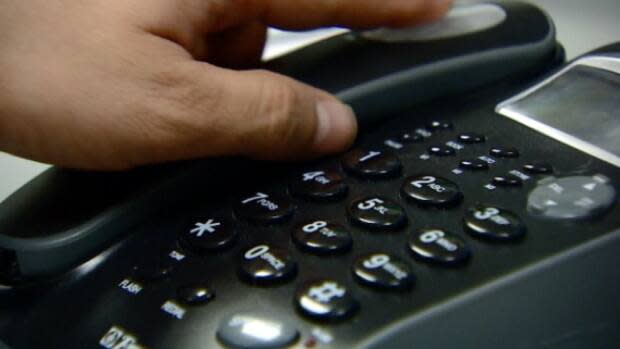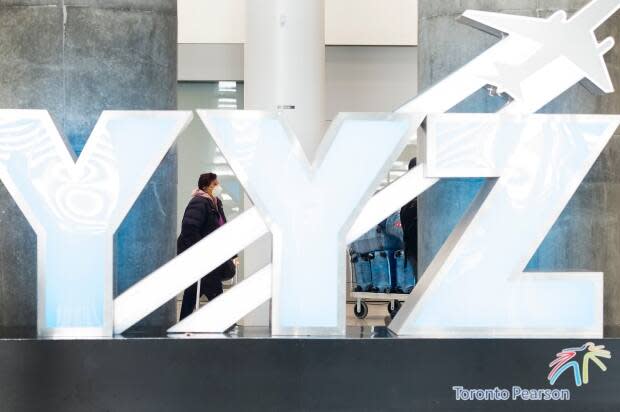B.C. worker wins job back after bout of diarrhea leads to company's COVID confusion

It started with a dodgy plate of chicken wings. It ended with Jeremy Arnot's job.
The B.C. man was fired last year for failing to follow his employer's COVID-19 protocols during a bout of diarrhea; he's now seen his employment reinstated by a labour arbitrator who says companies must provide workers with clear policies and training related to the coronavirus.
"An employee's report of diarrhea during this pandemic is not a sufficient justification for demanding a COVID test. The employer must establish, based on objective considerations, that a demand for a test is warranted," arbitrator Paul Love wrote in a recently released decision.
"Just because there is an ongoing pandemic, does not mean that an employer has the right to make a demand for a COVID test for any symptom experienced by an employee."
'Pirate language'
In a decision that highlights issues surrounding COVID-19 policies in Canadian workplaces, Love reinstated Arnot to his job as an industrial cleaner, substituting a five-day suspension for dishonesty in lieu of termination.
The ruling reflects the salty language of a workplace in which Arnot said he and his co-workers thought of themselves as "pirates."

"Apparently, many words in pirate language start with the letter F," wrote Love.
Arnot and other members of a Terrapure Environmental crew were dispatched to a Vancouver Island mill site for a few days in November 2020 when Arnot ordered a plate of chicken wings to his hotel room.
"After consuming the chicken wings, he became ill and was up during the evening with diarrhea. He did not experience any respiratory symptoms," Love wrote.
The next morning, Arnot showed up at the mill site where he was slated to power wash a tank. He told his supervisor "he had diarrhea and that he was going to 's--t his rain gear."
The supervisor sent him back to the hotel to get some rest.
COVID confusion ensued.
'Get a COVID test ASAP'
Arnot made plans to meet a friend for lunch, believing it would be beneficial for him to have some "real food."
In the meantime, others in the company's chain of command learned of his status.
Arnot claimed he told his field supervisor in a brief phone call that he had diarrhea from "bad chicken wings" and "it was not COVID." He claimed the supervisor said he was going to get clarification from a manager.
Shortly after, the supervisor texted Arnot to say, "You can't leave your room and must call 811 to get a COVID test ASAP" — but it was unclear whether he saw the missive before going for lunch.
In the hours that followed, the company claimed Arnot couldn't be reached. His supervisor sent him a text ordering him to get tested for COVID-19, to self-isolate and to stay away from the rest of the crew.
Arnot would later admit lying about going to Nanaimo to get a test and leaving because of the size of the lineup.
The arbitrator accepted his claim that he called 811 and couldn't get through.

Arnot said he relied instead on an online COVID-19 self assessment test that said he did not need to be tested for the virus.
Following an investigation, the company fired Arnot for insubordination, claiming he failed to call 811 and failed to self-isolate. The company also accused him of dishonesty and of surreptitiously videotaping a call with a manager.
Company 'did not have its act together'
Workplaces have grappled with protocols around COVID-19 testing and symptoms since the start of the pandemic.
Love cited two cases in which the firing of employees who contravened company policies have been upheld.
In one, a security screener at Pearson airport lost her job after coming into work on the same day she had a COVID-19 test — which ended up being positive. The employer's guidelines called for employees to self-isolate while waiting for the results of tests.

In another, a construction worker who had previously reported COVID-19 symptoms went to work with a runny nose before getting the all clear from the company nurse — as the employer's guidelines required.
Love said employers have a duty to protect other workers, but there must be "some connection between the symptoms reported and the employer's decision about whether a test is required."
The B.C. Centre for Disease Control lists the "key symptoms" of the virus as fever or chills, cough, loss of sense of smell or taste and difficulty breathing. Diarrhea is part of the "other symptoms may include" section.
'Unlike some employers, this employer did not publish a COVID policy or train its employees about COVID," Love wrote.
"While the employer appears to be concerned about the spread of COVID, it did not take the rather fundamental steps of implementing a policy and training the employees on that policy."
The arbitrator pointed out that Arnot's supervisors initially sent him back to the hotel without asking for a test, and that the crew regularly travelled to the worksite without masks in vehicles with no physical distancing.
He said Arnot should not be found to be insubordinate when the employer "did not have its act together."
Arnot admitted that his conduct was not "100 per cent" but he also said it was a "confusing time" for him.
"He had been instructed to self-isolate but people were banging on his door, which would have caused him to breach self-isolation. Leaving his room to get a COVID test would also have breached the direction to self-isolate," Love said.
"It is incumbent on the employer not only to give clear instructions, but also to give consistent instructions and behave consistently itself in accordance with those instructions."

